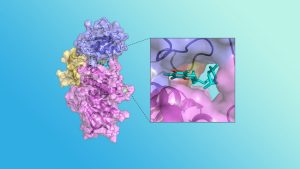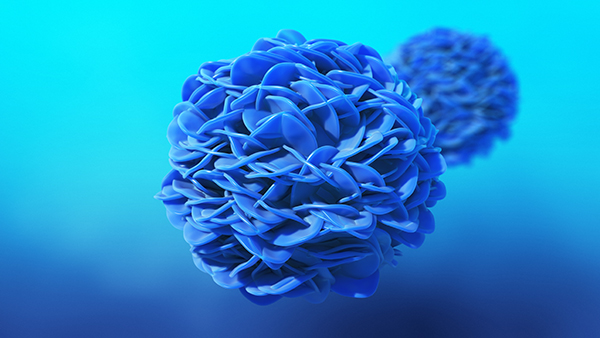Dietary supplements often accompany cancer treatments, including the newer cancer immunotherapies, even though it has yet to be established whether pairing supplements with cancer immunotherapies offers any specific or unique advantages. To clarify the issue, scientists at the University of Texas MD Anderson Cancer combined a retrospective analysis of clinical records with in-depth laboratory studies.
The scientists found, to their surprise, that in cancer patients who received immune checkpoint therapy, vitamin E significantly improved survival. The scientists also discovered, through experiments in mouse models, that vitamin E increased checkpoint therapy’s antitumor efficacy by stimulating dendritic cells (DCs).
Detailed findings appeared in the journal Cancer Discovery, in an article titled, “Vitamin E Enhances Cancer Immunotherapy by Reinvigorating Dendritic Cells via Targeting Checkpoint SHP1.” SHP1 is, as the article’s title indicates, a DC-intrinsic checkpoint. That is, SHP1 serves to regulate DC activity.
The researchers demonstrated that vitamin E directly binds and blocks the activity of the SHP1, increasing antigen presentation and priming T cells for an antitumor immune response. The results point to possible new therapeutic approaches to improve immunotherapy outcomes, including combinations with vitamin E as well as directly targeting SHP1 in DCs.
“This study broadens our understanding of factors that can influence responses to immunotherapies,” said Dihua Yu, MD, PhD, the corresponding author of the Cancer Discovery article. “We demonstrated that vitamin E can reinvigorate DC antigen presentation via the inhibition of SHP1. These results indicate that vitamin E-treated or SHP1-silenced DCs and DC-derived extracellular vesicles could be developed as potent immunotherapies for future clinical applications.”

Yu and colleagues found that patients with melanoma who took vitamin E while on anti-PD-1/PD-L1 checkpoint inhibitors had significantly improved survival compared to patients who didn’t take vitamin E or multivitamins. This finding was replicated in an independent mixed cohort of patients with breast, colon, and kidney cancers. However, patients taking vitamin E while being treated with chemotherapy did not experience the same benefits, suggesting the effects were unique to chemotherapy.
Next, the researchers demonstrated that vitamin E enhanced responses to checkpoint inhibitors in immunogenic mouse models of breast cancer and melanoma. However, models with low levels of tumor-infiltrating DCs did not benefit from vitamin E, suggesting the effects were dependent on these cells.
“Vitamin E entered DCs via SCARB1 receptor and restored tumor-associated DCs’ functionality by directly binding to and inhibiting SHP1,” the article’s authors reported. “SHP1 inhibition, genetically, or by vitamin E treatment, enhanced tumor antigen cross-presentation by DCs and DC-derived extracellular vesicles (DC-EVs), triggering systemic antigen-specific T cell antitumor immunity. Combining vitamin E with DC-recruiting cancer vaccines, or immunogenic chemotherapies, greatly boosted immune checkpoint therapy efficacy in animals.”
As vitamin E appears to improve the antigen presentation of DCs, the researchers investigated whether vitamin E could enhance responses from therapies known to release tumor antigens and recruit DC cell infiltration.
Laboratory findings demonstrated that vitamin E treatment could augment the effects of cancer vaccines and immunogenic chemotherapies combined with checkpoint inhibitors, including in a model of immunotherapy-resistant pancreatic cancer.
“SHP1 is an attractive target to effectively activate DCs for the development of potent immunotherapy,” said Xiangliang Yuan, PhD, the study’s lead author. “This work yielded important insights on the interaction between vitamin E and SHP1 that will guide us to develop more specific allosteric SHP1 inhibitors. Compellingly, it appears that unleashing DC by inhibiting SHP1 may be an advantageous strategy to enhance antitumor immunity.”
The research team is now exploring opportunities with clinical collaborators at MD Anderson to prospectively evaluate the effects of vitamin E in combination with checkpoint inhibitors and other immunotherapies. Team members also are exploring opportunities to develop a targeted SHP1 inhibitor as well as SHP1-modified DCs and DC-derived extracellular vesicles as novel future therapeutic options.


